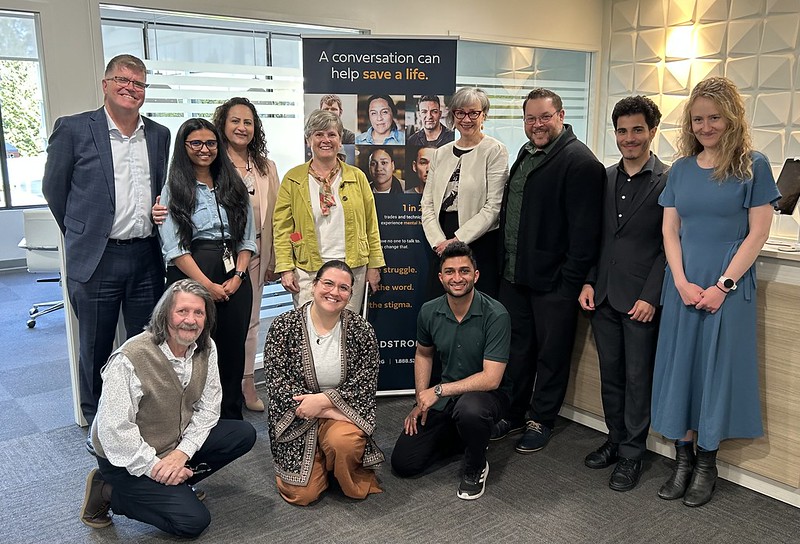B.C.’s Ministry of Health has committed $160,000 to support two specialized pain clinics that help construction workers manage chronic pain without opioids, aiming to reduce dependency risks and support workplace retention.
The funding, provided in spring 2025, will sustain the operations of two Opioid-Free Pain Clinics run by the Construction Industry Rehabilitation Plan (CIRP) in Burnaby and Langford. These clinics offer non-pharmacological treatments, such as myoActivation therapy and counsellor-led self-management programs, to workers dealing with chronic pain from physically demanding construction jobs.
“People in the construction industry need specialized supports with mental-health and substance-use challenges,” said Josie Osborne, Minister of Health. “By continuing to fund the Opioid-Free Pain Clinics by Construction Industry Rehabilitation Plan, we are expanding access to safer pain-treatment options that support recovery from injuries, reduce harm and improve overall well-being.”
The clinics are part of B.C.’s broader strategy to enhance mental health and addiction care by expanding treatment options, including early intervention, housing, and overdose prevention services.

Construction workers, who face higher rates of injury and substance use, often struggle with long-term pain management. The opioid-free approach aims to provide effective alternatives that allow workers to stay on the job and avoid dependency.
“Construction work is physically demanding, and chronic pain is a reality for many in the industry,” said Labour Minister Jennifer Whiteside. “These opioid-free pain clinics give workers access to effective care without the risk of dependency.”
The Burnaby clinic has treated more than 120 patients since opening in 2020, logging over 1,500 appointments. Following that success, a second clinic launched in Langford in fall 2024.
Vicky Waldron, executive director of CIRP, described the initiative as a “groundbreaking solution to a serious problem facing construction workers,” adding, “we’re deeply grateful to the Ministry of Health for supporting a new path forward for workers who need effective, safe and long-term pain relief.”
Clients at the clinics have reported improved physical function and well-being. “When I wake up to go to work, I no longer feel crippled and more often than not, I am smiling,” said Ryan, a patient at the CIRP clinic. “CIRP kept me working through this rehabilitation, kept me off the streets and allowed me to keep the positive momentum I needed so much.”





